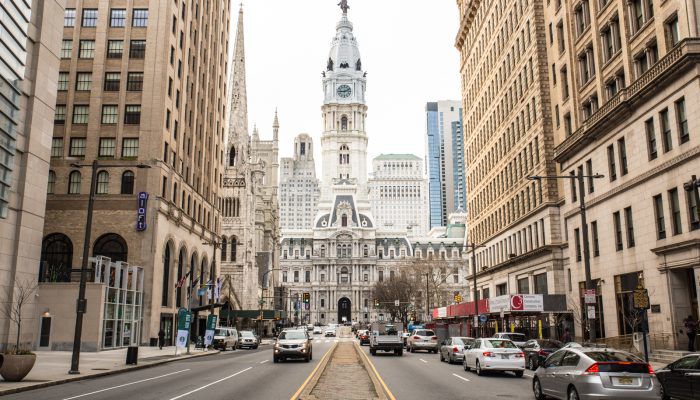Philadelphia’s City Council Grants Preliminary Approval for 2021 Budget
Courtesy of the City of Philadelphia
phl city hall
June 19, 2020
In the midst of nationwide protests and growing demands to defund police departments, Philadelphia’s City Council announced a $33.4 million cut to police funding. Millions of dollars will now be devoted to citywide reforms and redistribution of funds to anti-poverty actions.
It was announced on Wednesday that the City Council’s Committee of the Whole approved a $4.9 billion budget for the 2021 fiscal year. The initial budget included a $25 million investment in anti-poverty initiatives and dedicated $20 million to affordable housing. A proposal to reinstate funding for the arts was also compromised.
The revised budget comes as protests continue across the U.S. in response to the death of George Floyd and heightened pressure for police reform. Economic deficits, nearing $749 million, due to the coronavirus pandemic affected the 2021 budget as well.
The new budget directly conflicts with Mayor Jim Kenney’s original proposal to increase funding for the city’s police department by $14 million. After 14 of Philadelphia’s 17 council members penned a letter about their lack of support for funding increases, Kenney rescinded his directive to expand funding for police. Council members further encouraged the mayor to “recalibrate” priorities for the proposed budget.
“The lack of access to affordable housing, health care, living wage jobs and healthy foods has been exposed by [the COVID-19 pandemic] – along with many problems,” City Council President Darrell Clarke (D-5th District) said, following the vote on Wednesday. “We cannot go back to that old normal. We need to create a ‘New Normal’ and address these disparities head on. I believe this budget is an important start towards doing that.”
Although council members are encouraged that the budget will progress the city in a positive direction and address disparities, those on the side of law enforcement are not as optimistic.
John McNesby, the president of the Fraternal Order of Police Lodge No. 5, an organization that represents law enforcement officers, was disappointed by the news of proposed budget cuts, saying that “city leadership has turned its back on the residents and police department.” He went on to call the proposed cuts “both reckless and irresponsible.”
“Our political leadership is tone deaf and blind to the realities of public safety in our city by implementing these drastic budget cuts,” McNesby said, arguing that police community outreach efforts would also be negatively impacted by the budget.
A spokesperson for City Council reassured those opposed to the new proposal that the city’s finance team and the Kenney administration collaborated to produce a balanced budget that closes the gap in accordance with the June 30 deadline. Kenney spoke individually to describe the process of building a fair budget as “the most difficult budget process” he had ever experienced.
He further said that the time and effort put forth to develop such a budget shows the “level of seriousness and dedication that matches the gravity of the situation facing Philadelphia, both in terms of the COVID-19 pandemic and our shared desire to work toward social justice and racial equity.”
The mayor also addressed the negative impact of the budget, in that hundreds of jobs will be cut due to the reduction of certain services, but he emphasized that his administration and the City Council “prioritized core services, protected our most vulnerable residents and maintained our financial flexibility to enable a quick rebound.”
The proposal that will be initially read at the regular Thursday council meeting will include the following reforms associated with policing budget cuts: body cameras for police officers, implicit bias training for law enforcement, involvement of mental health professionals for police-assisted diversion, an equity manager for the police force and redistribution of funding in several areas of the department.
Philadelphia is not the first major city to announce changes to its police force and budget. Minneapolis, the city where Floyd died while in the custody of police, announced its plan to dismantle the police force in order to create a new public safety system from the ground up. San Francisco Mayor London Breed proposed a plan to replace police officers with trained, unarmed professionals for noncriminal calls. The changes are set to be implemented over the next few months.












